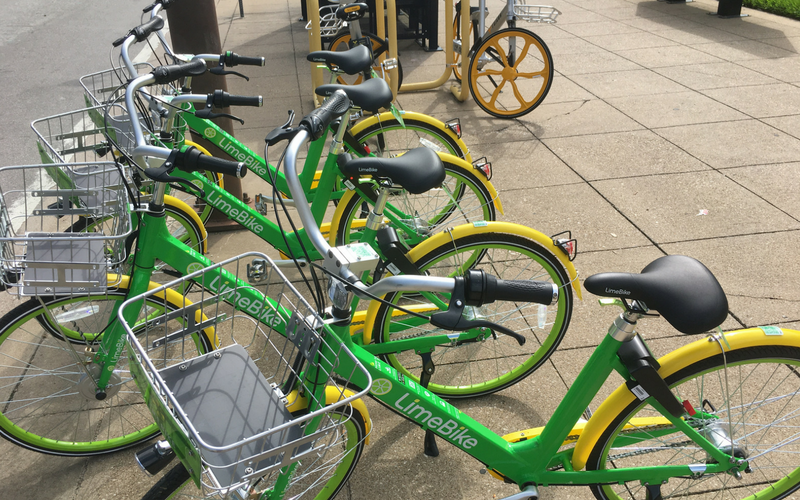In the late summer of 2017, three dockless bike share programs began operating in Downtown Dallas: VBikes, Spin and LimeBike. As many residents rejoiced at the idea of trading in congested commuting time in their car for a spin on two wheels, others wondered if the city’s infrastructure was ready for such a significant cultural shift.
As we near the one-year anniversary of these companies’ arrival in Big D — and the prospect of even more transportation options hovers on the horizon — let’s take a look at the most recent bike-sharing news.
Usage Numbers
Late last year, Silicon Valley’s LimeBike released data about the use of their bikes during their first six months in Dallas. Those figures revealed that riders have pedaled a total of 105,000 miles so far and that LimeBike can currently claim 45,000 “active” users across the region.
Breaking these numbers down further, LimeBike found that:
- The average ride lasts just over a mile.
- About 51 percent of their riders use the bikes during evening rush hour.
- One in five LimeBike trips starts near a public transit station, meaning many riders are using the bikes in conjunction with DART’s public transportation services.
Perhaps the most striking statistic is this one — LimeBike riders in Dallas have prevented 57,000 pounds of carbon dioxide from entering the atmosphere. That reduction is CO2 is equivalent to what would be provided by 2,300 trees.
Resident Complaints
Encouraging metrics aside, however, not every Dallasite is excited about or pleased with these bike share programs. By far, the loudest complaints have centered around the sheer quantity of bikes appearing all over the city. Estimates place the number of app-activated, shareable bikes in Dallas at 20,000. That’s 6,000 more bikes than are currently available to the more than eight million residents of New York City.
In response, Dallas City Hall issued a stern warning to the bike share companies at a special January meeting on this issue. The City Council specified that if the companies themselves don’t find a way to manage the number of bikes clogging our streets, trails, neighborhoods and parks, the city will be forced to do it for them. And the city’s solution may involve impounding bikes.
In response, LimeBike has committed to increasing its local bike collection staff. They’ve also pledged not to place any new bikes in circulation and to make modifications to how (that is, where) the bikes are distributed. LimeBike will even be installing a sensor on each bike that will notify the company if the bike has been knocked over. Workers will then be deployed to locate the bike and set it upright.
As for City Council, they’ve not yet added any regulatory language to Dallas’ agreement with the bike share companies. However, plans are underway to pass an ordinance in May that would create new bike-parking requirements, thus reducing bike congestion, and impose franchise fees to help the city build a better biking infrastructure.
Plano Regulation
Plano, meanwhile, has taken specific measures to better police these bikes. In February, Plano’s City Council voted unanimously to pass the first ordinance in North Texas regulating the bike share companies. The ordinance will allow the city to enforce terms and conditions around bike placements, bike density (how many bikes can occupy a single location) and the timeliness with which the companies retrieve their bikes.
Electric Scooters
At Austin’s SXSW Conference and Festivals in March, LimeBike announced an initiative to bring a fleet of electric scooters to Dallas. City officials confirmed that the company has shipped scooters to Dallas, with plans to launch in the Arts District, Uptown and Klyde Warren Park.
However, electric scooters are currently illegal on city streets and sidewalks — public bike paths and trails are an exception — so the program remains on pause. It will be up to the Dallas City Council to decide whether they want to rewrite city ordinances to allow electric scooter traffic in these areas.
What are your thoughts on bike sharing in our city? Join the conversation with us on Facebook and Twitter.


